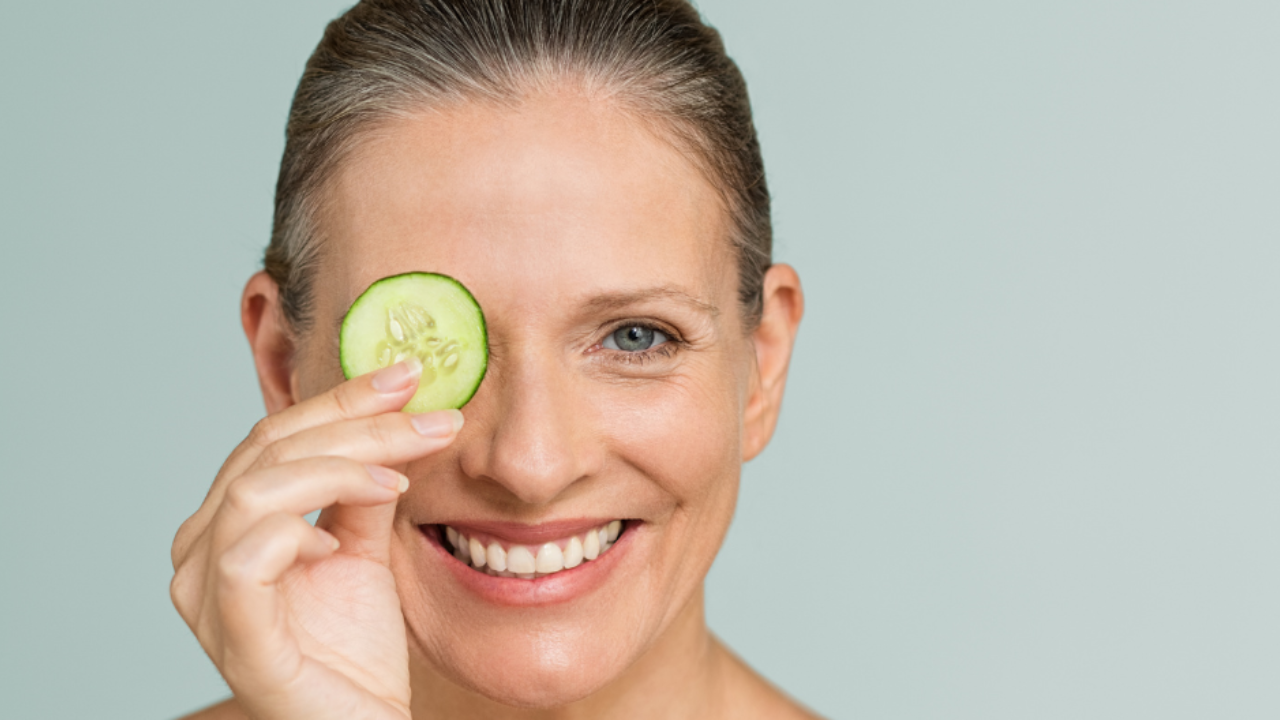Skin Health and Nutrition
Jun 30, 2023
Your skin is your largest organ and it plays a vital role in your overall health and wellness. It protects what’s inside you by keeping water and nutrients in, while keeping harmful bacteria and viruses out. Your skin helps you maintain your body temperature and makes vitamin D when exposed to the sun. It’s also full of nerve endings to help you sense the outside world and avoid damage from things that are too hot, cold, or sharp.
Skin care isn’t only something we need to do on the outside. What we eat and drink affects all of our vital organs—including our skin.
Your skin is a complex organ and needs a variety of different nutrients every day to stay healthy . . .
Water
When it comes to our skin, water is just as essential. Your skin has three layers.
The outermost layer—the one you see and feel—is called the epidermis.
The middle layer is the dermis and underneath that is your hypodermis.
When your epidermis doesn’t have enough water, your skin feels rough and loses elasticity. The water your epidermis needs comes from the inside.
Drinking more water can help skin hydration and may be particularly beneficial if you have dry skin or don’t drink enough water.
Protein
Your skin is made up of several different proteins. For example, collagen and elastin are very plentiful and build up the structure of your skin. Over time, and with exposure to the elements, your body’s ability to produce collagen decreases.
Keratin is another important protein in your skin. Keratin makes up the outer epidermis layer giving it rigidity and enhancing its barrier protection.
The recommended daily amount of protein is based on your body weight. For every 20 lbs you weigh you should try to get just over 7 grams of protein each day. Protein is found in meat, poultry, fish, dairy, and eggs. Plant-based sources of protein include soy, lentils, beans, nuts, seeds, whole grains, and even vegetables like corn, broccoli, and asparagus.
Essential fatty acids
A higher intake of linoleic acid is associated with lower levels of skin dryness and thinning as skin ages. On the other hand, a lack of fatty acids is linked to increased water loss from the skin, drying it out and causing weakness in the protective outer barrier.
You can get these essential fatty acids from eating fish (salmon, tuna), shellfish, nuts (walnuts), seeds (flax, chia, pumpkin, sunflower, sesame), oils (soy, canola), leafy vegetables, and avocados.
Vitamin C
A deficiency of Vitamin C (scurvy) results in skin lesions, as well as skin that is easily bruised and slow to heal. This is, in part, because of Vitamin C’s role in stabilizing the protein collagen. Another sign of Vitamin C deficiency in the skin affects hair follicles and can cause “corkscrew hairs.”
Every day you should aim for at least 75 mg of Vitamin C. Fruits and vegetables are rich sources In particular, bell peppers, citrus fruits (oranges, grapefruits), broccoli, cauliflower, strawberries, kiwis, blackcurrants, potatoes, rose hip, and parsley.
Vitamin E
Deficiency of Vitamin E is linked to red, dry skin. When given together, vitamins C and E (and zinc) can speed up wound healing.
Vitamin E is often applied directly (topically) on the skin to reduce redness and some of the effects of sun damage. Ingesting Vitamin E helps the skin from the inside by protecting collagen and fats from breaking down. The recommended daily allowance for Vitamin E (alpha-tocopherol) is 15 mg. You can get Vitamin E in vegetables, oils (wheat germ oil, olive oil, vegetable oil, sunflower oil), nuts (almonds, hazelnuts), spinach, broccoli, corn, kiwis, and soy.
Skin care beyond nutrition
While nutrition is essential don’t forget other important skin care practices that help protect and nurture your skin.
- Use gentle cleansers and warm (not too hot) water to keep skin clean
- Moisturize after taking a shower or washing your hands
- Avoid things that bother your skin such as harsh cleansers, fragrances, and irritating fabrics
- If you have allergies or intolerances (e.g., to gluten or pollen), avoid those
- Limit your sun exposure and use sunscreen as appropriate
- Be physically active
- Try to get enough quality sleep
- Use a humidifier and wear gloves when the weather is dry and cold
- Avoid tobacco
The nutrients you consume feed your whole body—including your skin. As your largest organ with many critical roles, your skin needs a variety of different nutrients every single day.
Stay connected with news and updates!
Join our mailing list to receive the latest news and updates from our team.
Don't worry, your information will not be shared.
We hate SPAM. We will never sell your information, for any reason.


